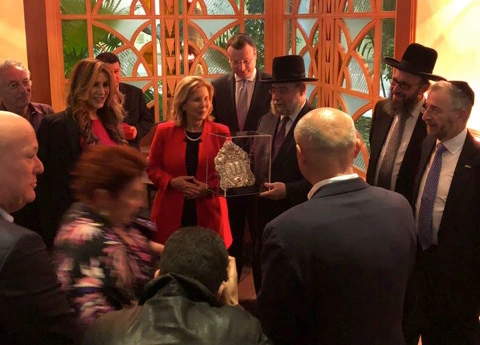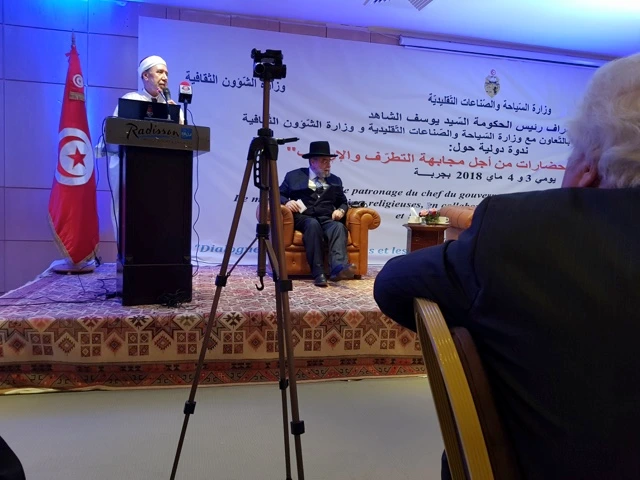
Originally published on thearabweekly
The guests at the Radisson Hotel on Djerba weren’t expecting the rabbis. That much was clear. Nevertheless, the 30 or so orthodox rabbis visiting Muslim-majority Tunisia made their way through the hotel foyer to the astonishment of the assembled guests.
Other foreign Jewish organisations have visited Tunisian before but this was the first time the Conference of European Rabbis assembled within a Muslim country so the gathering was loaded with symbolism.
For the rabbis, the visit was evidence that religious cohabitation was possible. For the dwindling number of Jews of Djerba, this was a vital link to the wider European Jewish community. For Tunisia, it was proof the country had ridden the wave of radicalisation that threatened to engulf it a few years previously and that the state was in control.
Tunisia has been home to Jewish life since at least Roman times. However, after the horrors of the second world war and the founding of the state of Israel, the numbers of Jewish Tunisians plummeted. In 1948, it was estimated 100,000 Jews lived in Tunisia. Today, that number stands at about 1,500. Approximately 1,000 of those live on the small Mediterranean island of Djerba.
For almost as long as there have been Jews in Tunisia, there has been an annual pilgrimage to El Ghriba synagogue to celebrate

Lag BaOmer. Tunisian Minister of Tourism Salma Elloumi Rekik said: “The Jewish religion is the oldest religion in our country and El Ghriba is very important. Tunisian Muslims and Jews (have been) living together for more than 2,000 years, so I think El Ghriba is an occasion to be together.”
“I think (our presence here) sends a powerful message to the Arab world, to Europe and to Israel that we have to strive for peace and understanding,” said Pinchas Goldschmidt, president of the Council of European Rabbis and the chief rabbi of Moscow.
Clad in traditional rabbinical dress, the rabbis travelled from Germany, France, Luxembourg, Russia, the Netherlands and Israel. Across Djerba, security was ubiquitous with all reporting of the event embargoed until after the rabbis’ departure. Armed guards patrolled nearly every junction around the synagogue and police outriders flanked the motorcade that transported the rabbis along the narrow roads and through the small villages.
Referencing the terrorist attacks of 2015 and the risks to Tunisia’s Jewish minority during a turbulent period, Goldschmidt said” “I think we’re looking at (Tunisia) with more optimism today than we were three years ago and the fact that we’re here is a significant statement.”